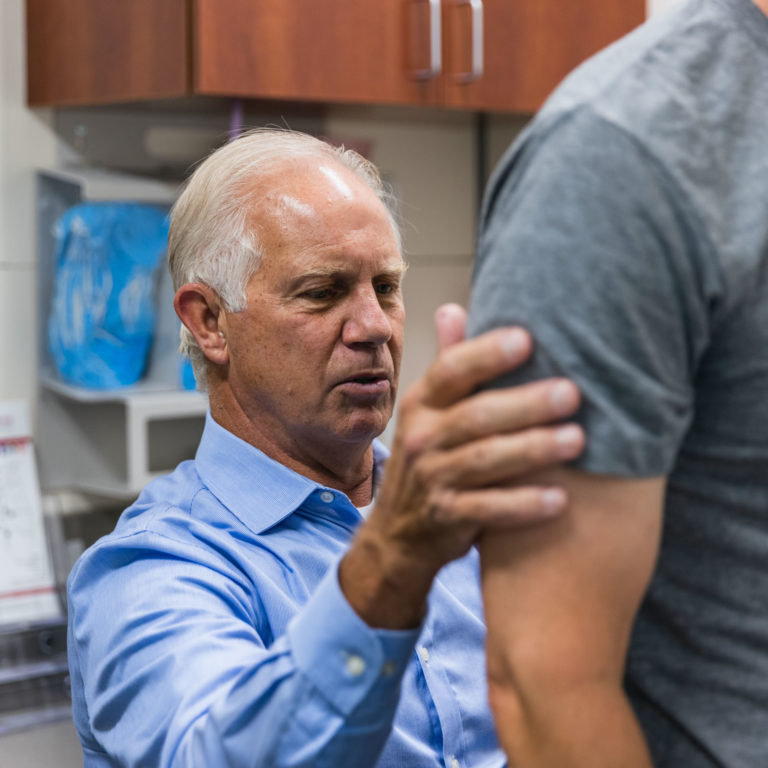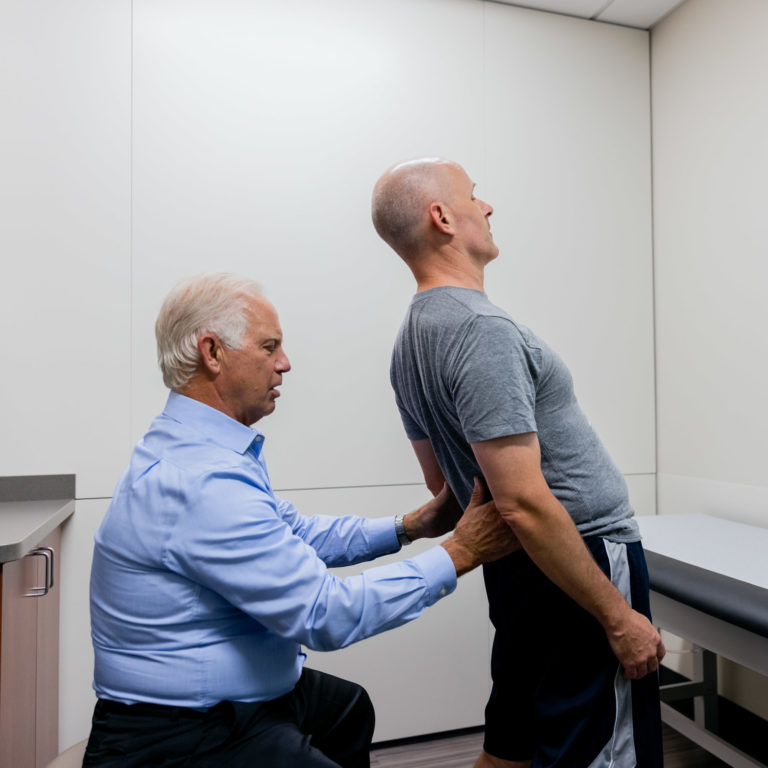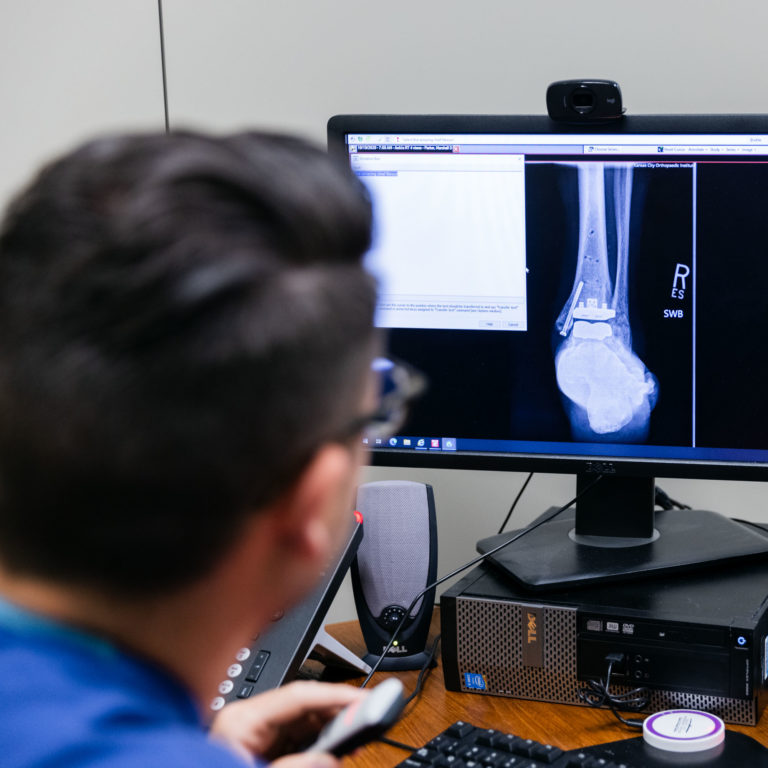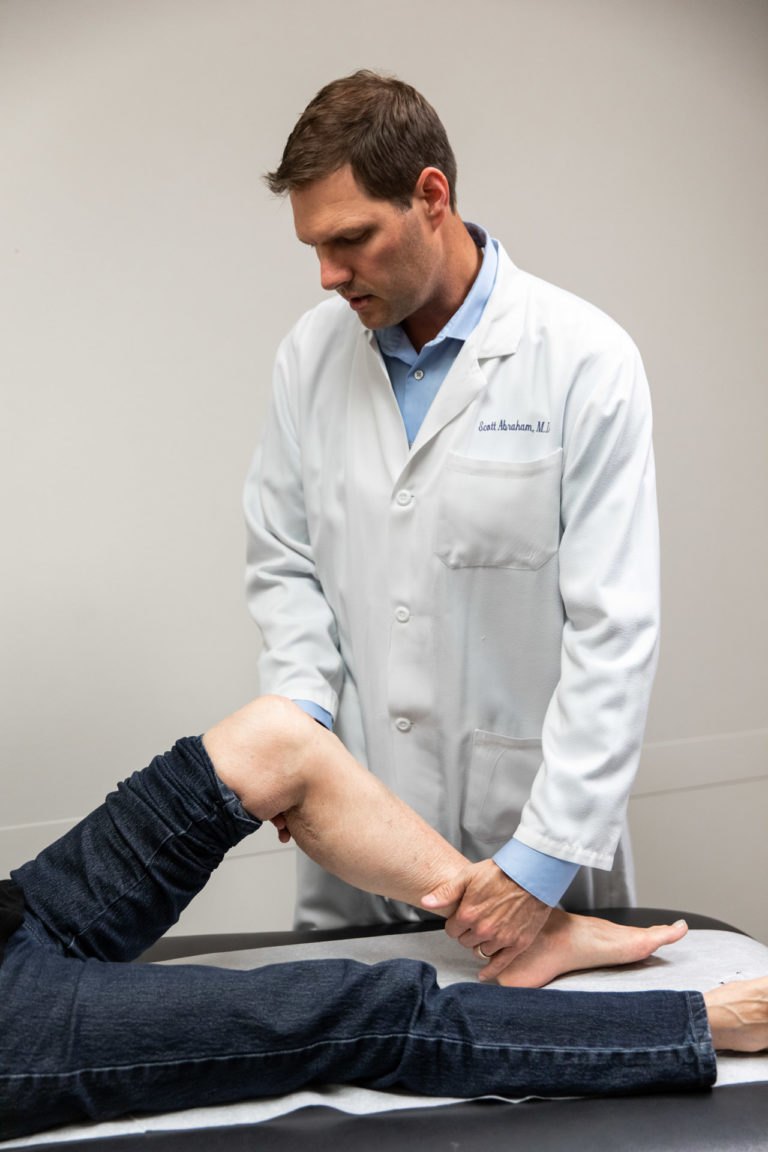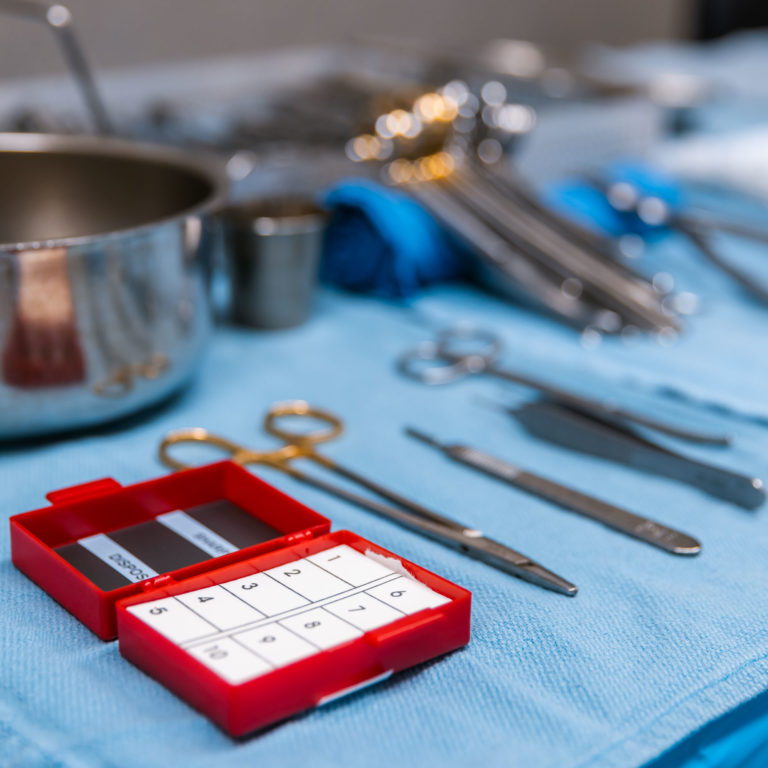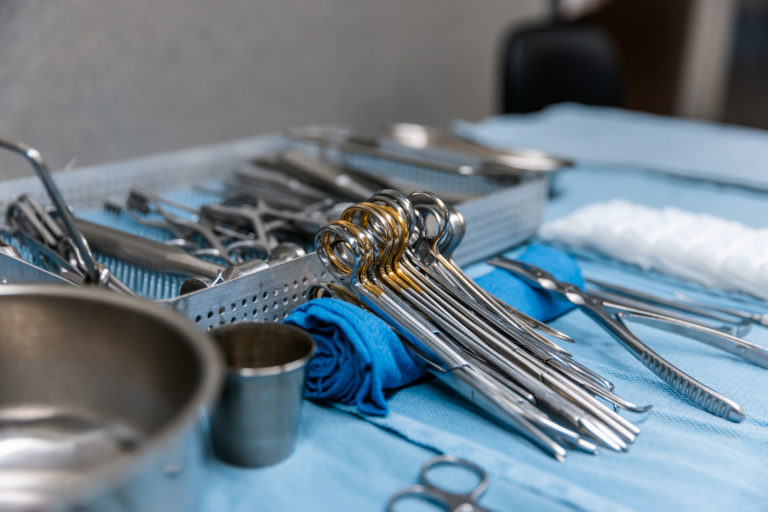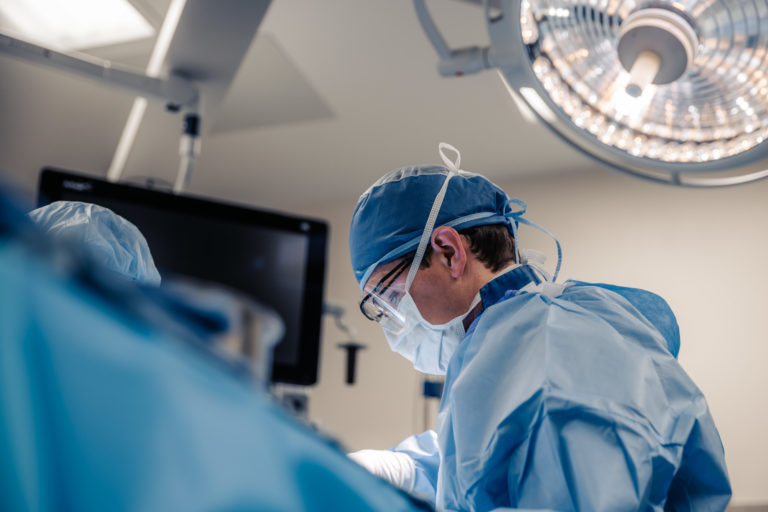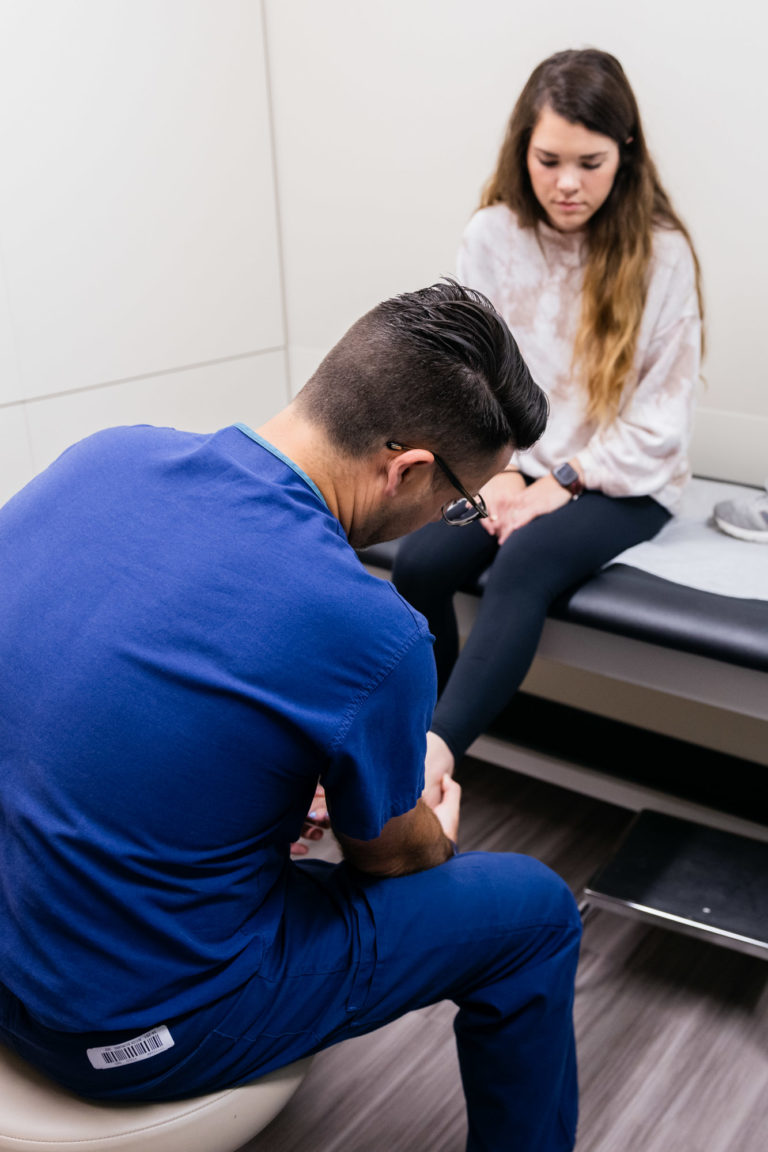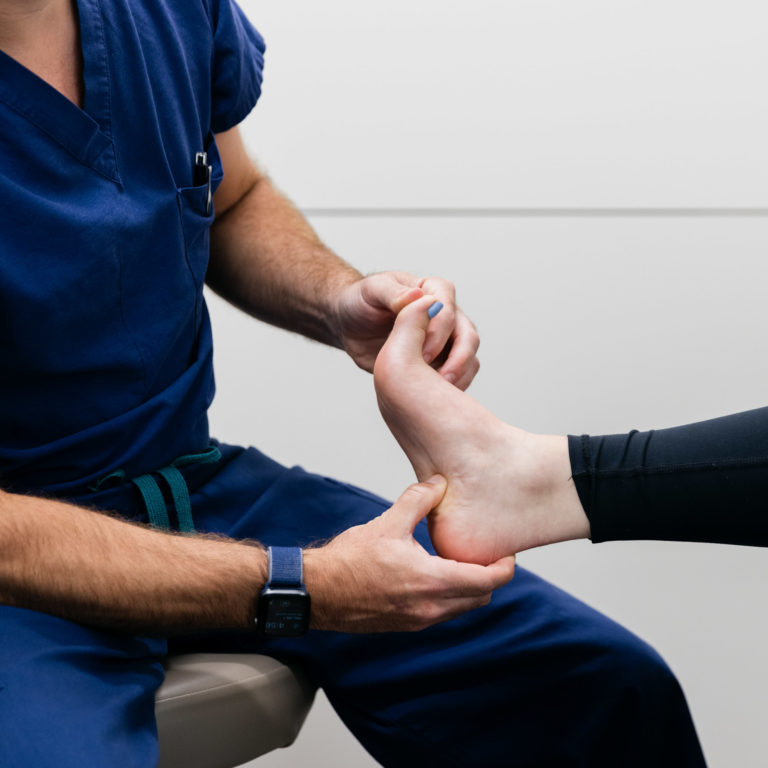Compression Fracture Treatment in Kansas City
Compression Fracture Management
Premier Fracture Management from Top Kansas City Specialists.

Understanding the Basics Behind Compression Fractures
What are Compression Fractures?
When vertebrae— the bones of your spine — weaken, they become more prone to breaking.
Compression fractures occur when too much pressure weighs on the vertebrae, causing part or all of the vertebrae to crack and collapse. Common symptoms of a compression fracture include back pain, lost height, or a hunched posture.
Leaders in the field, Kansas City Orthopedic Alliance physicians specialize in compression fracture treatment. With over 100 years of combined experience, we strive to help each patient repair fractures, regain mobility, and reduce pain.
Before assuming you have any kind of fracture, be sure to schedule an appointment with a Kansas City Orthopedic Alliance physician.
We can provide professional insight and a proper diagnosis to understand your treatment options.
Your First Appointment
Initially, you may notice some pain from a compression fracture, but some patients don’t seek treatment until the pain worsens over time. Whenever pain becomes severe, limits your mobility, or causes you to have trouble sleeping, it’s best to visit a Kansas City Orthopedic Alliance physician.
During your initial visit, we will ask you to fill out paperwork detailing the injury. You should also bring any X-rays or diagnostic tests you’ve had performed prior to coming to Kansas City Orthopedic Alliance for treatment. Lastly, we’ll require proof or insurance or form of payment for the provision of the services rendered.
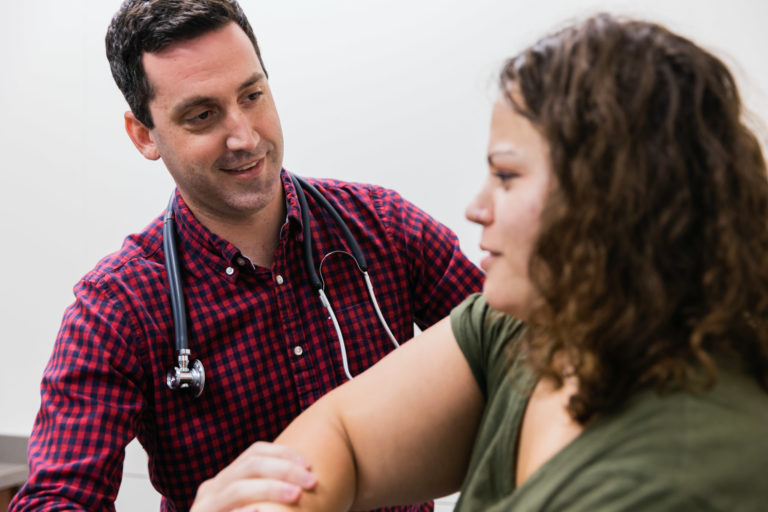
Kansas City Orthopedic Alliance pain Assessment
Assessing the Injury
During your appointment, you will sit with your Kansas City Orthopedic Alliance physician of choice to discuss your fracture, pain levels, exacerbating factors that increase or decrease pain, previous treatments, and more.
From there, your provider will perform a physical exam and other necessary diagnostic studies. With your test results, your fracture specialists can build a treatment plan to repair your broken bone(s).
Therefore, during your initial appointment, we will often ask questions such as:
- Does your pain currently limit you or your activities?
- Has your pain progressed or worsened recently?
- Have you noticed any change in your symptoms that have made it more challenging to function?
- What are your lifestyle goals?
- How has pain affected those goals?
From there, we can decide whether more conservative treatments will suffice or whether you would find the most benefit with surgery.
The Exam
Examination
Your physician will utilize diagnostic tests to determine the severity of your fracture. Commonly, you may have to undergo X-ray exams to diagnose the condition.
Testing options may include:
Magnetic resonance imaging (MRI)
Magnetic resonance imaging (MRI) scans to test for damage to soft tissue around the fracture such as disks and nerves.
Bone scans
Bone scans to catch bone abnormalities that could also determine whether you have an acute or chronic fracture.
Bone density
Bone density testing to monitor the severity of the underlying osteoporosis, if present.
X-ray
Typically, repeat X-ray images are necessary throughout treatment to ensure proper healing. In more severe or less straightforward cases, additional technology like ultrasound or CT scans are necessary to ensure a proper recovery path is outlined.
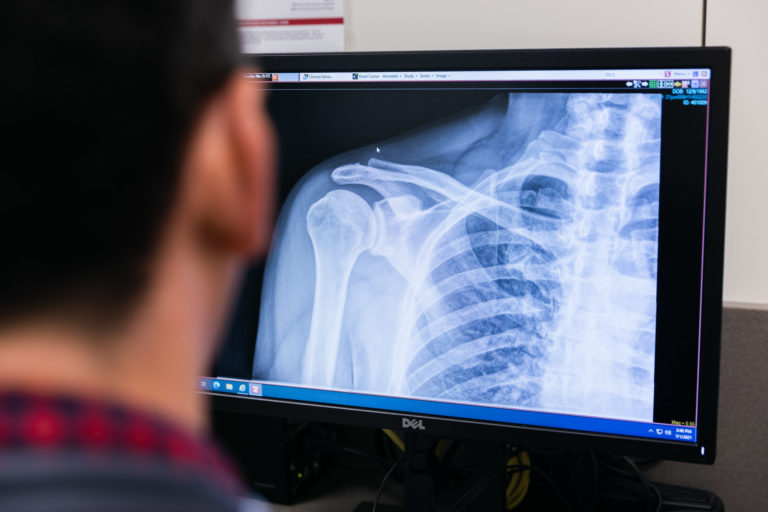
Establishing Care
Establishing a Care Plan
Based on the results of your examinations and symptoms, you can expect a custom care plan catered specifically to you. From there we outline treatment options for your fracture and results to expect.
During your first appointment and follow-up appointments, our physicians typically recommend conservative measures before turning to surgery. As a result, you don’t have to worry about us pushing a surgical procedure, especially when other treatment options could help. This is part of our dedication to bringing value to our patients as the largest orthopedic practice in Kansas City.
Ongoing Treatment & Continued Care
If you also have an osteoporosis diagnosis, we may recommend ongoing treatment and lifestyle changes to promote bone and spine health. Unfortunately, there is no known cure for osteoporosis. Medications may help slow the breakdown of bone or have the potential to rebuild bone.
Compression fracture symptoms include:
- Back pain
- Decreased height
- Stooped posture
- Numbness or tingling
- Issues walking
- Decreased range of motion
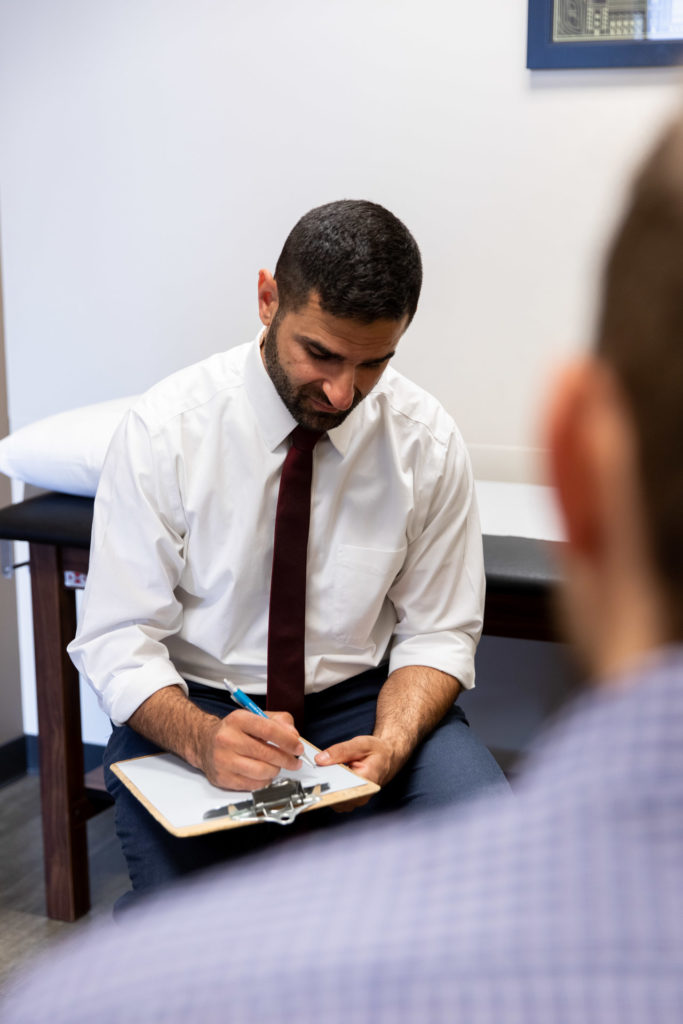
Causes
Causes of Compression Fractures
While compression fractures can result from injuries or even tumors, most commonly they derive from osteoporosis-induced bone weakness.
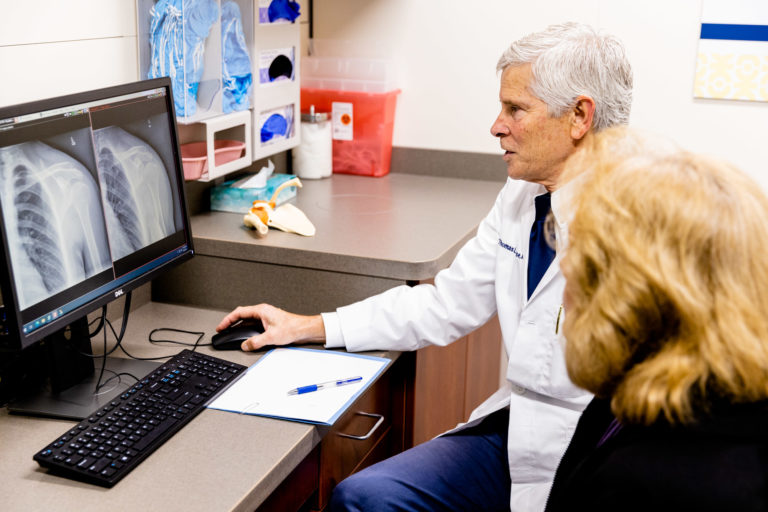
Osteoarthritis:
Osteoporosis is a common bone disease marked by loss of tissue and density, which causes bones to become brittle and weak. Since bones are living tissues, they constantly break down and replace themselves. However, people with osteoporosis have a higher rate of bone loss than bone growth, making them more susceptible to fractures.
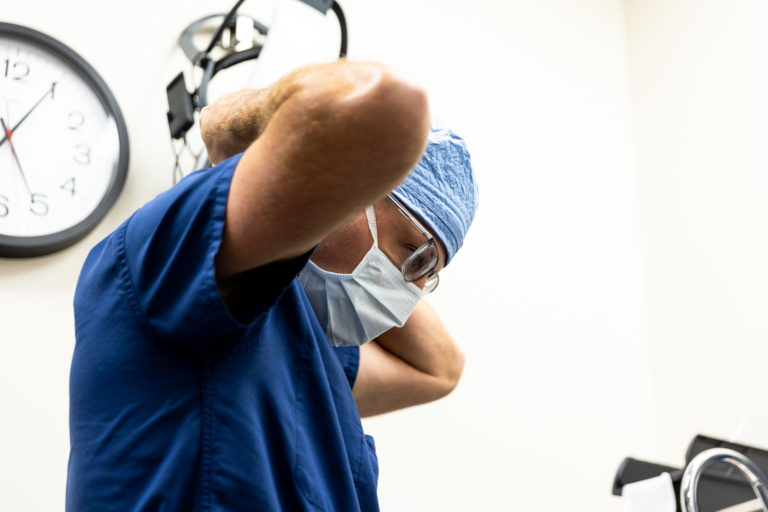
Injury:
Often, bone loss occurs progressively and without symptoms, so many times people don’t realize they have this “silent disease” until symptoms arise or a fracture occurs. A person may develop a compression fracture after an injury such as a fall, but with osteoporosis, a weakened vertebrae could break from daily activities.
Non-Surgical Treatments
Oftentimes, compression fractures resolve on their own within a few months. Based on your needs, your physician may recommend rest, medications, physical therapy, or bracing to promote healing. If your compression fracture stems from osteoporosis, non-surgical solutions such as exercise, diet, and lifestyle changes can help manage bone degradation.
Physical Therapy
Weight-bearing exercises can improve strength and balance, lessening the chances of falls and greatly reducing the risk of injury.
Diet
Make smart food choices, with healthy amounts of protein, and get the recommended calcium and vitamin D.
Lifestyle changes
Don’t smoke, and only drink alcohol in moderation.
F.A.Q.
Frequently Asked Questions
About Kansas City Orthopedic Alliance
Meet Kansas City Orthopedic Alliance
Our board-certified, fellowship-trained physicians and surgeons are highly experienced in their respective fields and are considered among the top orthopedic providers in the Midwest.
Along with our Physician Assistants, Nurse Practitioners, and support staff, Kansas City Orthopedic Alliance physicians deliver the utmost level of dedicated care across a range of subspecialties.
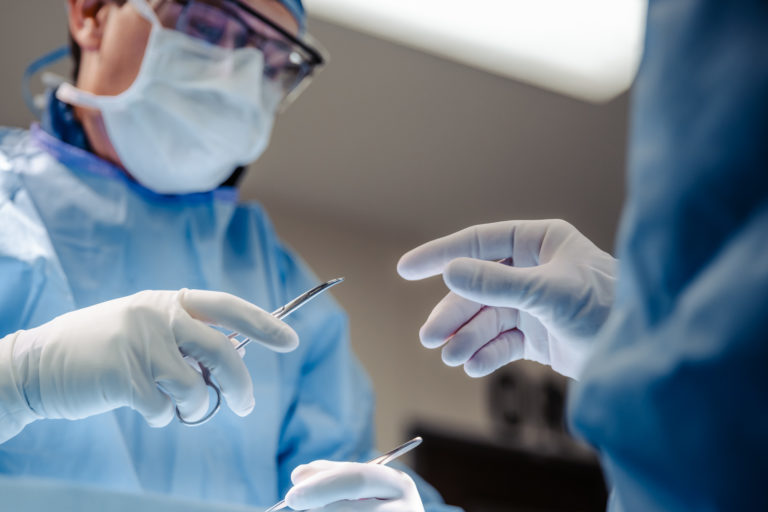
You Deserve the Best Compression Fracture Treatment in Kansas City.
Our care is personal. Our team is knowledgeable. And we’re more available than ever.
With access to board-certified specialists across Kansas City, we have the tools to meet almost every musculoskeletal condition.
Our Locations
Overland Park, Kansas
10777 Nall Ave Suite 300 Overland Park, KS 66211Leawood, Kansas
3651 College Blvd. Leawood, KS 66211Kansas City, Missouri
Saint Luke's Medical Plaza #1 4320 Wornall Rd., Ste. 610 Kansas City, MO 64111Belton, Missouri
Belton Regional Campus 17067 S Outer Rd #301 Belton, MO 64012Blue Springs, Missouri
St. Mary’s Medical Center, Main Entrance 203 NW R.D. Mize Road, Suite 200 Blue Springs, MO 64014Shawnee Mission, Kansas
7450 Kessler St ste. 140 Merriam, KS 66204Prairie Star (Lenexa, Kansas)
Prairie Star 23401 Prairie Star PkwyBldg. B, Ste. 220 Lenexa, KS 66227

